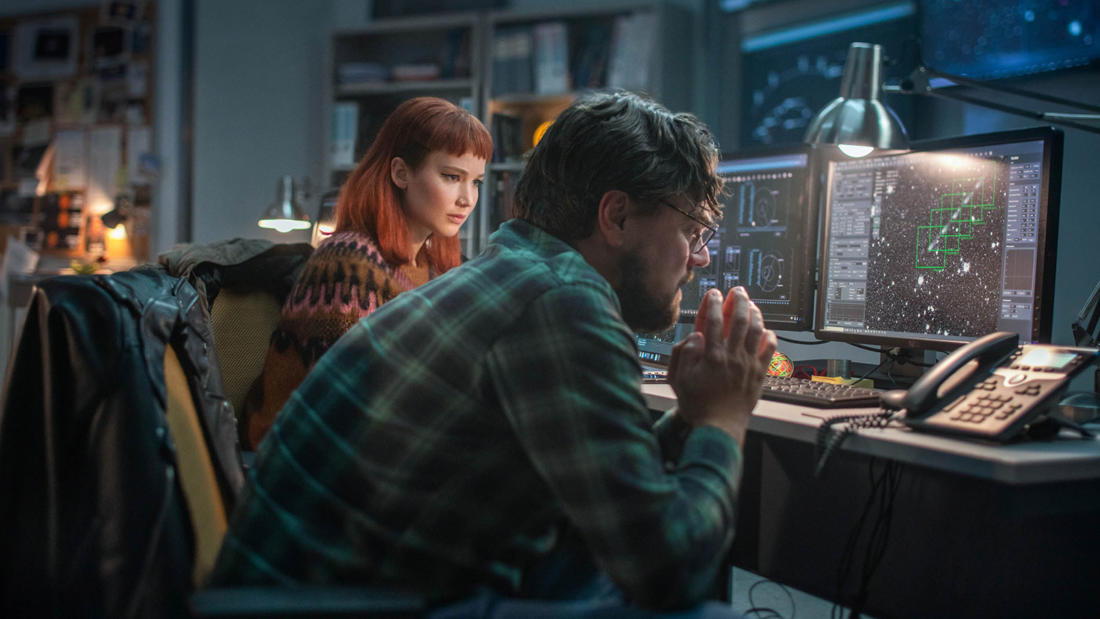
The Loft Cinema Tucson, AZ
Dr. Chris Impey
University Distinguished Professor and Deputy Head, Department of Astronomy, University of Arizona in Tucson
Don't Look Up— It works whether you believe it or not: The science of Don't Look Up
Program Description
Featuring an in-person introduction by University of Arizona Distinguished Professor of Astronomy, Chris Impey! Dr. Impey addresses several key questions related to the sci-fi satire: How accurate is the movie's science? What's the difference between the current climate threat and a potential comet threat? If a comet really was heading for the Earth, could we stop it? How should scientists deliver bad news and, more generally, deal with science denial and misinformation?
Presented At
The Loft Cinema Tucson, AZ
Film Synopsis
Two low-level astronomers must go on a giant media tour to warn mankind of an approaching comet that will destroy planet Earth.
Kate Dibiasky (Jennifer Lawrence), an astronomy grad student, and her professor Dr. Randall Mindy (Leonardo DiCaprio) make an astounding discovery of a comet orbiting within the solar system. The problem: it's on a direct collision course with Earth. The other problem? No one really seems to care. Turns out warning mankind about a planet-killer the size of Mount Everest is an inconvenient fact to navigate. With the help of Dr. Oglethorpe (Rob Morgan), Kate and Randall embark on a media tour that takes them from the office of an indifferent President Orlean (Meryl Streep) and her sycophantic son and Chief of Staff, Jason (Jonah Hill), to the airwaves of The Daily Rip, an upbeat morning show hosted by Brie (Cate Blanchett) and Jack (Tyler Perry). With only six months until the comet makes impact, managing the 24-hour news cycle and gaining the attention of the social media obsessed public before it's too late proves shockingly comical -- what will it take to get the world to just look up?! — Rotten Tomatoes
Photo courtesy of Netflix
About the Speaker
Dr. Chris Impey is a University Distinguished Professor and Deputy Head of the Department of Astronomy at the University of Arizona in Tucson. His astronomy research focuses on observational cosmology—using telescopes and other instruments to study the large-scale structure and evolution of the universe. He also does research on education and science literacy. He’s written over 50 popular articles on cosmology and astrobiology, two introductory textbooks, a novel called Shadow World, and eight popular science books, including The Living Cosmos, How It Ends, Talking About Life, How It Began, Dreams of Other Worlds, Humble Before the Void, Beyond: The Future of Space Travel, and Einstein’s Monsters: The Life and Times of Black Holes.